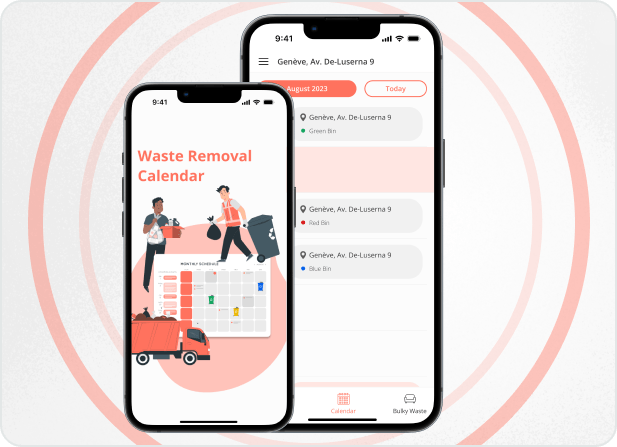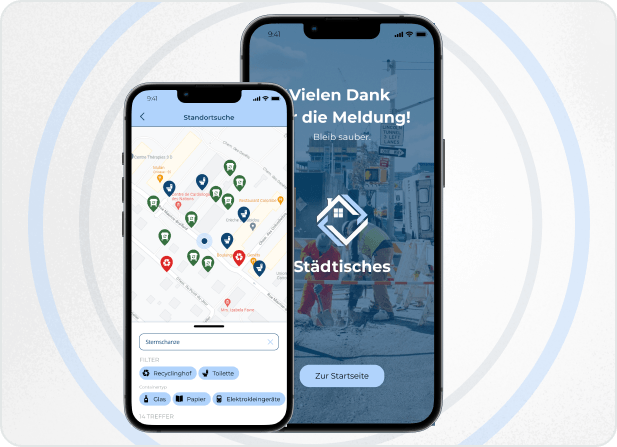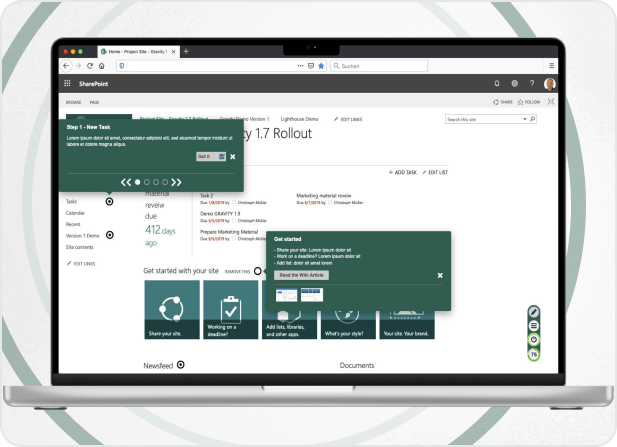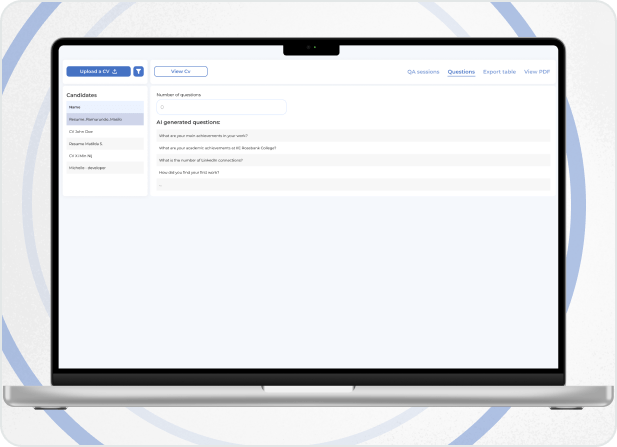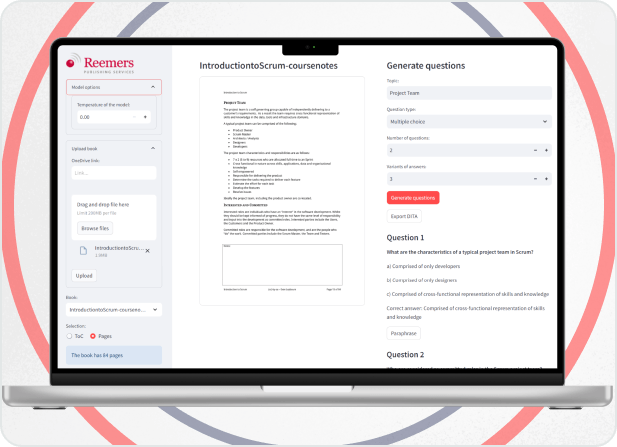DevOps Consulting and Development Services
Silk Data, as a DevOps services company, perfectly synchronizes software development and IT operations. We stand ready to be your trusted partner in achieving agility, reliability, and innovation within your business.


DevOps Overview
At its core, DevOps is a way to break down the barrier between software development and IT operations and at the same time, deliver services and apps to market at a rapid pace.
The end goals of DevOps include enhancing operational performance, improving deployment frequency, achieving faster time to market, maintaining a high level of product quality, and ensuring customer satisfaction.
The heart of DevOps lies in practices that seamlessly integrate into the development process, contributing to a more efficient and responsive development process.
Here's a Quick Look into a Few Essential DevOps Practices:
- Continuous Integration:
This practice encourages developers to frequently merge their code changes into a central repository, where automated builds and tests are run. CI aims to improve software quality and reduce the time taken to validate and release new software updates. - Continuous Delivery:
An extension of CI, continuous delivery automates the delivery of applications to selected infrastructure environments. This practice ensures that the software can be reliably released at any time, helping teams reduce the time-to-market. - Continuous Deployment:
A step beyond continuous delivery, continuous deployment automates the release of new changes to customers without requiring manual intervention. This ensures that the software development lifecycle is further streamlined and feedback loops are shortened. - Infrastructure as Code (IaC):
This practice involves managing and provisioning computing infrastructure using software code. Developers can efficiently create new environments and define their preferred IT configurations using code. This approach significantly shortens development cycles, enabling faster and more streamlined progress than ever before.
- Microservices:
This cloud-native architectural approach involves breaking down a single application into smaller, independently deployable components, or services. Each of these parts can be updated or changed without affecting the others, making the system easier to manage. Moreover, with microservices, individual components can be scaled independently according to demand, ensuring optimal resource utilization and efficient handling of diverse workloads. - Monitoring and Logging:
DevOps engineers actively monitor metrics and logs to evaluate the impact of application and infrastructure performance on the end-user experience. By collecting and analyzing this information, it helps them uncover the root causes behind problems or unexpected changes, contributing to a comprehensive understanding of the products' overall impact on the user experience. - Communication and Collaboration:
The essence of DevOps is to break down silos and encourage open communication and collaboration within and between IT teams. DevOps tools and automated software delivery processes enhance collaboration by integrating development and operations workflows.
With DevOps as a Service (DaaS), businesses have the option to outsource their DevOps implementation to third-party DevOps service providers. This model allows companies to focus on their core business functions with the assurance that skilled DevOps specialists manage their DevOps environment. It is particularly valuable for businesses that want to embrace DevOps principles but may lack the in-house resources or expertise to implement and manage these practices effectively.
When DevOps Deployment Services Matters Most
It might be the right moment to consider DevOps consulting when you struggle with the following challenges:- Inefficient delivery processes that result in delays, errors, and customer dissatisfaction.
- New features, fixes, and updates take a long time to reach the market.
- Poor communication between teams.
- Inability to cope with the increasing complexity and scalability of modern applications.
- Security and compliance concerns in the development lifecycle.
- There is no robust system in place for backup and recovery, increasing the risk of data loss or downtime.
- Differences between development, testing, and production environments lead to unexpected issues during deployment.

Benefits of DevOps
Faster Time-to-Market
DevOps practices streamline development processes, automating testing and deployment. This results in quicker delivery of new features and updates to the market.
Adaptability and Flexibility
DevOps professional services enable infrastructure flexibility through cloud services and containerization, allowing businesses to adapt quickly to changing business requirements.
Lowered Costs
Automation of manual processes and efficient resource management in DevOps help organizations utilize resources more effectively, reducing infrastructure costs and improving overall cost efficiency.
Better Risk Management
Continuous monitoring and automated testing enable teams to detect and address potential issues early on. This reduces the likelihood of major system failures or security breaches, enhancing overall system reliability.
Improved quality
DevOps promotes quality and reliability in the development process. Automated testing prevents bugs and regressions. This makes development more stable and reliable, as problems are fixed before deployment. Better software quality also means happier users and fewer emergency fixes.
DevOps Services and Solutions Silk Data Offers
Our expertise in DevOps is akin to the meticulous weaving of a butterfly, creating invisible yet powerful threads. We bring lightness and skill to your development processes through automation. Silk Data aspires to perfection, ensuring high-performance outcomes in process development and security and fortifying your position in the market.
- CD/CI Pipeline Integration
Silk Data specializes in seamlessly integrating CI/CD pipelines into the development workflow. This involves automating the process of building, testing, and deploying code changes. Implementing a robust CI/CD pipeline empowers organizations to deliver faster and more reliable releases, reduce manual errors, and enhance collaboration among development and operations teams.
- Infrastructure and Configuration Management
Silk Data automates and streamlines the management of clients’ web application infrastructure, ensuring a seamless, efficient, and robust digital environment. Our approach helps minimize the occurrence of errors due to the consistent environment, ensures the automation of deployment processes, promotes infrastructure scalability and flexibility, and enables rapid disaster recovery after failures. It also enhances security and monitoring through change control to optimize performance throughout the web application development cycle.
- Infrastructure as a Code
Silk Data employs the IaC approach to decompose infrastructure configurations into reusable modules for streamlined provisioning, conduct continuous code testing to prevent errors, keep a complete record of all infrastructure versions, simplify and automate the scaling and adaptability of infrastructure on demand, and automate the deployment of multiple environments.
- Microservices
As a DevOps development company, Silk Data helps clients design and implement microservice architectures, allowing organizations to break down monolithic applications into smaller, independently deployable services. This approach enhances microservice scalability, facilitates faster development cycles, and promotes better resource utilization.
- Serverless Architecture
By leveraging serverless computing, businesses can focus on building and deploying code, eliminating the need for traditional server management. Thanks to serverless architecture, Silk Data can help you with automatic load-based scaling of server resources,reducing development time, enabling rapid deployment and updates through automation, and optimizing infrastructure costs.
- DevSecOps
Silk Data integrates DevOps security practices at every stage of clients’ development lifecycles. By embedding security checks directly into pipelines, vulnerabilities are identified early, reducing risk exposure.
- Cloud Migration
Silk Data assists clients in migrating web applications from on-premises to the cloud environment, mitigating security risks and minimizing data losses. We take full responsibility for the migration process,including data backup and recovery. Moreover, we combine cloud and DevOps services to ensure clients’ apps run smoothly.
- DevOps Consulting Service
Silk Data is well-equipped to assist clients in devising a DevOps implementation strategy as well as establishing and customizing tools for containerization, IT automation, and application monitoring.
Why Choose Silk Data as Your DevOps Сompany
- 10 years in IT domain.
- 40+ IT experts, with key specialists having PhD degrees.
- 200+ successful projects.
- Broad areas of expertise, including education, publishing, marketing, retail, insurance, financial services, etc.
- Flexible pricing options.

DevOps Tech Stack We Utilize
Here’s a glimpse into the tools and technologies that help Silk Data power your DevOps pipeline:
CI\CD tools
Jenkins, GitLab CI, Bitrise, Ansible, GitHub Actions
Containerization
Docker, ECS, EKS, AKS, Helm, Harbor, Nexus
Infrastructure as a Code (IaC)
Terraform
Monitoring Tools
Zabbix, New Relic, Prometheus, ELK, Grafana, Sentry
Clouds
AWS, MS Azure, GCP, Hetzner Cloud
Our Success Stories
KPIs to Measure DevOps Efficiency
By consistently evaluating DevOps KPIs, you can refine your DevOps strategies and maintain control over the product development process. This approach also sheds light on the development pipeline’s effectiveness, quality, and reliability, enabling DevOps engineers to pinpoint potential improvements.
- Lead Time (for Changes):
Measures the time taken from code commit to deployment. A shorter lead time indicates faster delivery. - Deployment Frequency:
Tracks how often code changes are deployed to production. A higher deployment frequency is generally considered advantageous, indicating a more agile and responsive development. - Change Failure Rate:
Calculates the percentage of failed deployments. A low failure rate signifies stability.
- Availability/Uptime:
Monitors system availability. High uptime is crucial for a high customer satisfaction score. - Mean Time to Recovery (MTTR):
MTTR measures how long it takes to recover from a partial service interruption or total failure. A lower MTTR indicates an efficient incident response.

